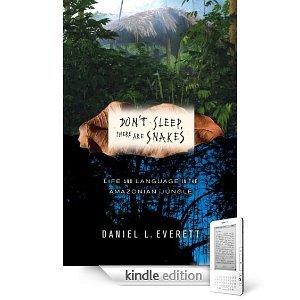What I discovered is that no more than one possessor can occur in a given phrase (dog is the possessor of tail, for example). If there were no recursion in the language, this would make sense. You can get one possessor without recursion by simply having a cultural or linguistic understanding shared by speakers that when two nouns are next to each other, the first one is interpreted as the possessor. But if you have two possessors in the clause, one of them has to be in a phrase that is within another phrase.
Welcome back. Just a moment while we sign you in to your Goodreads account.


